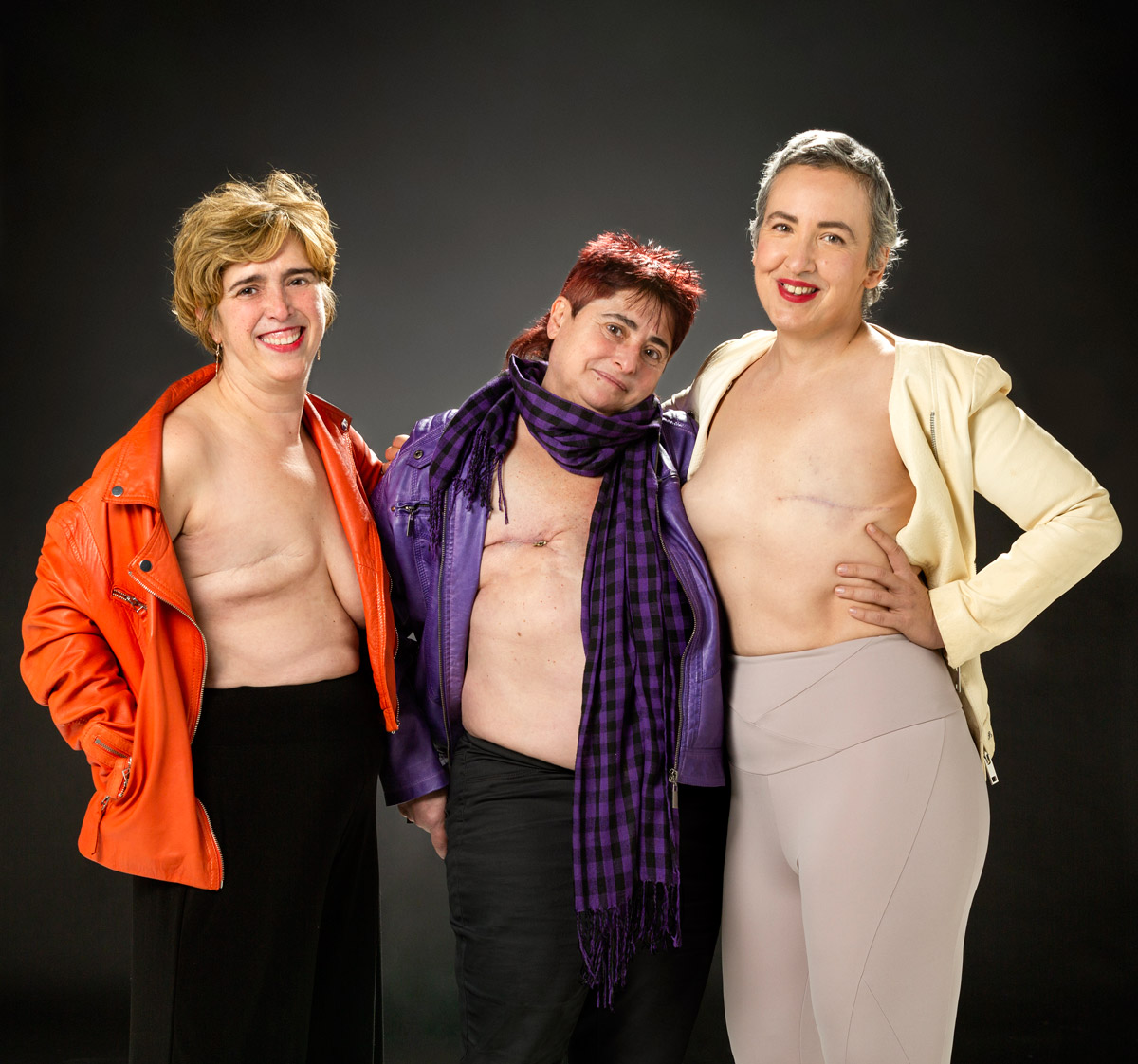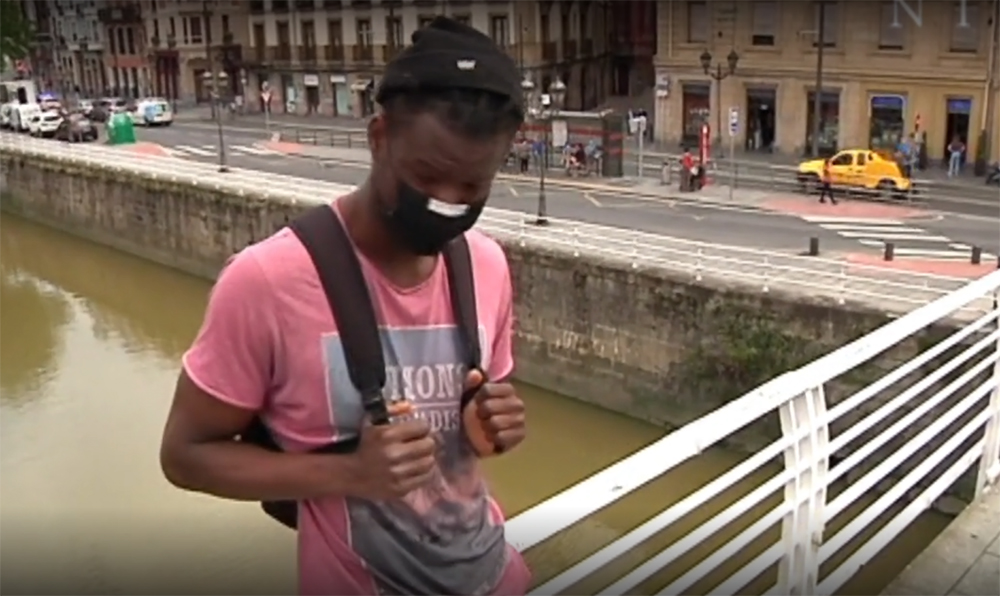"Citizens always think that a quick hand will save the people"
- Gaby Etxebarne has always stood by the poor. He says it's the essence of his life. He joined the writing exercise in 2001 and since then is in it. But he's not considered a writer. If you analyze the topics discussed in the books, you will find Etxebarne's internal interests and concerns. Warning that he is a charlatan, he opened his own and began to talk about everything.

You have written many books. It is composed of many testimonies. Why choose yourself?
I'm not a real writer, I get people to talk. I also talk about my life, because if I want you to tell them about yours, I have to tell you about mine. It's an exchange, it's not a conversation simple.Ya whether it's pastors, mothers or immigrants, I've written the books to retain their memories.
What does writing bring you?
It's an activity that I can do soon at 85 years old. Despite continuing in many associations, I do much less than before. At that age, you die more quickly. But writing doesn't exhaust me. Plus, it helps me psychologically, it's a great therapy for me. I write both to myself and to others.
What do you want to contribute to others?
It was a great honor for them. They wanted to talk, they had a lot to say. They weren't experts, they weren't scientists, I didn't even know who; they were talking simple, basic citizens. I've always liked to know the basics, that's the essence of my life.
You wrote the last thing to heal yourself.
Yes, Sur les pas des disparus d’Argentine (after the footsteps of the disappeared in Argentina). From 1962 to 1968, I was in Argentina, to the serora. At the time, I met Alice Domon and Léonie Duquet, who talked to the poor, so they were rich. I'm proud to have worked with them. These two great friends disappeared in 1977, were tortured and thrown alive into the sea. I had long wanted to talk to you about them. In 2013, I was in Argentina and on the lap I was very bad. He was desperate from the world, he said that nothing changed, that new dictatorships always came, that the Church was always with the powerful... It's true that I wrote the book to heal myself.
You stopped being a serora.
We left the convent about fifteen in 1975. We wanted to be like everyone else, we didn't want to have any kind of special protection. Alice Domon, for example, was in slave farmers’ associations and many were persecuted. We were with them on the same boat, and when there were too many dangers, we didn't allow ourselves to be protected. Although I stopped being a serora, I continued to help the poor, either with the unions, either in the unemployed movements or in the CCFD-Terre Solidaire association. What I do now with writing, deep down. I became a serora when I was 21, and I left her at 42. It is obvious that it was not done for me.
Was it by choice or obligation that he entered the series?
I've done a psychotherapy to understand why I entered the convent. At that time I had no psychological maturity, I was intimately linked to the tribe of Aldude, but at the same time I wanted to move away. The phrase “What people are going to say” was always heard, and too much, we could do nothing without being cared for and criticized! They were suffering, they said it was a bribon, that laughed too hard ... I wanted to leave the tribe, but maintaining good relationships. To the serora, I chose a missionary to make me happy and let me leave!
He has also collected testimonies from immigrants. We talk a lot about them, but we don't look at them.
It is a disgrace. I heard Bernard Kouchner say that, during the Vietnam War, we exiled 150,000 people without any problems. Now we want 7,000! Why? Above all, because there are many Muslims who are setting up terrible nationalism in France. The extreme right is being installed throughout Europe. I have a sister who has lived in Beirut since 1962, and who informs me about the situation in the Middle East. I realize that we know nothing about it, that the media do not explain anything to us. It is not surprising, knowing that almost all the French media are in the hands of three miliars. But it is clear that we are responsible for what is happening there.
The silliness with them is fast.
But what do you think? ! No one leaves his people satisfied. At the time Aldude was emptied... They were families of ten children, but there was only room for one. Either they went to the convent or they emigrated. The wives suffered a lot, how many had been raped by their owners in Bordeaux or in Paris? And the pastors ... A year without seeing anyone! We suffer, we know... How can we now not understand immigrants?
Fear?
A lot. Because in all the peoples that have been dictated the same thing happens: resentment of immigrants, nationalism, limit... Citizens always believe that a quick hand will save the people. People are obedient, they want rulers to give orders, they impose them. Experience shows us, however, that this is a disgrace, a repression and a great deal of pain.
“2001ean hasi nintzen idazten, lagun batzuk ‘zure biziaz idatzi behar zenuke’ erran zidatenean. Je marche à leur côté (haien ondoan nabil) liburua argitaratu nuen orduan, hamar bat lagunekin batera. Jende sinpleen biziaz idaztea genuen xede eta nirearekin hasi ginen. Horrela lotu nintzen idazketari eta bai, biziki gustuko dut ariketa”.
2020an egitekoak ziren azken Lasterbidean, euskal presoen eskubideen aldeko lasterketa, baina pandemiak atzeratzera behartu zituen. Aurten maiatzaren 28an egingo dute Kanpezun. Lasterketa luzea eta laburra izango dituzte, eta bazkari herrikoia ere bai.
Bilboko Udalak hesiak ezarri zituen pasa den abenduan Atxuri auzoko kirolgunean. Gauez itxi egiten dutenez, etxerik gabeko migratzaileek ez daukate bertan lo egiterik, orain gutxi arte bezala. Pertsona horiekin elkartasunez hainbat lagunek hesiak bota dituzte, "arrazakeria... [+]
Garazi Abrisketa (Zollo, 1988) eta Aitana Izagirre (Zollo, 1993) Mirentxin Gidariak ekimenaren parte izan dira eta euren esperientzia azaldu dute, baita taldearen disoluzioak utzi dien sentsazioa ere.
Mirentxin boluntarioen taldeak azaldu duenez Etxerat elkarteak adierazi die jadanik ez dela euren laguntzarik behar euskal presoei bisitak egiteko bidaietarako, preso gehienak gertuagoko kartzeletara hurbildu dituztelako. 1999an sortu zen kolektiboa eta urtero 700 gidari baino... [+]
Pairatu jazarpen hau dela eta, haien "harridura" eta "mina" nabarmendu dute Etorkinekin elkartasun sarekoek. Migratzaileak laguntzen segituko dutela argi utzi du Ipar Euskal Herriko kolektiboak.

























